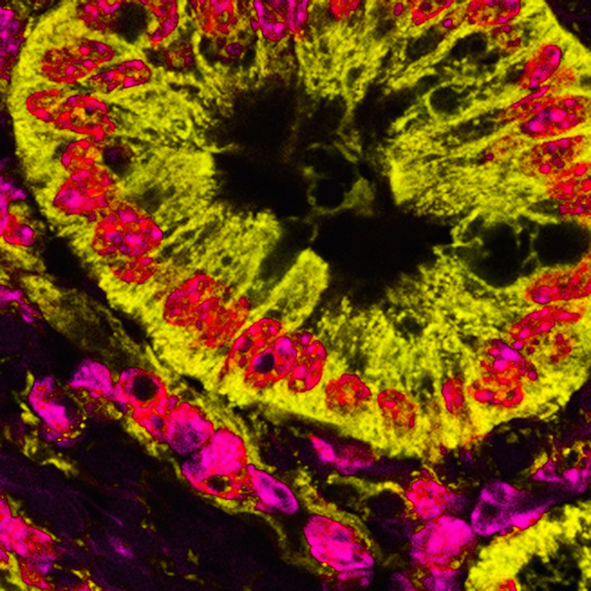
U.S. startup PictorLabs has announced its launch with an AI-powered virtual tissue staining platform that it promises will revolutionize histopathology.
The digital pathology company, spun out of the University of California at Los Angeles, can produce unlimited virtual stains almost instantaneously from a single unstained tissue sample.
This could eliminate the need for traditional, chemical-based staining, thereby reducing the time to obtain results and enabling repeat biomarker testing without the need for multiple tissue samples.
In this way, the deep-learning technology could accelerate clinical decision-making, innovation and drug discovery as well as simplifying workflows, potentially transforming a field that has seen little change in decades.
“Conventional histological staining takes specialized training and extensive amounts of time and resources to execute,” PictorLabs’ CEO and co-founder Yair Rivenson, PhD told Inside Precision Medicine.
“In addition, potential variability in the current standard of care chemical reagents and protocols can lead to inconsistent results.
“Our virtual staining technology applies AI-powered algorithms that have been designed and rigorously trained to produce virtual stains that are indistinguishable from their chemical-based counterparts, enabling pathologists to interpret results just as they would with a chemically stained tissue sample and greatly expediting time to results for both clinicians and researchers.”
The pre-Series A company has just completed a $15.2M funding round, with investors including Merck KGaA’s strategic, corporate venture capital arm M Ventures.
Other participants included laboratory information systems provider SCC Soft Computer, and Turkish investment company Koç Holding.
This latest tranche brings its overall funding to $18.8M since 2019, and will be used to expand PictorLabs’ biomarker portfolio, develop novel products and for recruitment and infrastructure.
The company has already successfully applied its virtual staining system for several well-validated disease biomarkers and is pursuing disease areas with unmet need.
“The beauty of this technology is that it can grow and evolve to address diagnostic needs across a vast array of clinical areas,” explained Rivenson. “We’re currently engaging with key opinion leaders, academic centers, and pharmaceutical and diagnostic companies to understand their pain points and we’re looking at areas with high unmet need for diagnostic information.
“We’ve prioritized oncology and precision medicine to start, where there is an acute need for novel tests to generate accurate diagnoses, expand treatment options, and accelerate drug development.”
He told Inside Precision Medicine that the company is currently investing heavily in research and development and optimizing its current virtual staining products.
It is also developing novel products through the expansion of the platform’s multiplexing capabilities, involving the layering of different stains.













